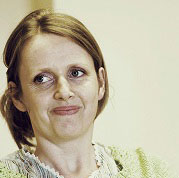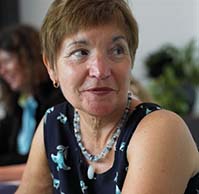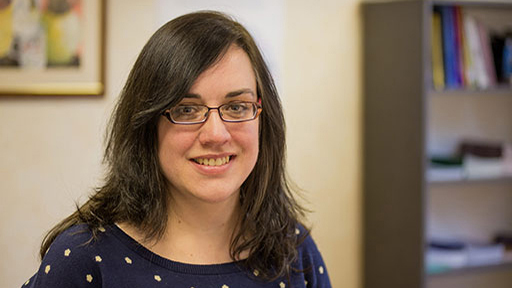Thinking about skills, qualities and attributes
First we will hear from various carers about the skills, qualities and attributes they have developed from their caring roles. Then it will be your turn to think about this in terms of what carers bring to the workplace.
Activity 3.3 Reflection on valued skills and qualities in the workforce
Think about the following question and make some notes in your notebook or Reflection Log.
- What skills and qualities would you value in your workforce?
Go to Activity 3.3 in your Reflection Log. Once you have completed the activity make sure you save the document again. Alternatively, you can use this document [Tip: hold Ctrl and click a link to open it in a new tab. (Hide tip)] but don’t forget to save it.
If you are doing this course as part of a group or with a mentor then you can share your answers and discuss your notes with others.
Dean
Listen to Dean talking about the skills he’s gained through his many caring roles.

Transcript
Clair

Clair reflects on how caring, and the need to see things from the point of view of the person she is caring for, means she knows how to see things from other people’s perspectives.
You have to think of the other person all the time … so you do think of the way they see things. I think it’s important for everyone to see everyone’s point of view. That’s such a vital thing in life, because if you just think of your own point of view and your own self and everything, then you don’t get other people and you don’t understand what they’re doing. You understand why someone’s doing something if you look at it from their point of view.
This ability to see things from another’s perspective is sometimes called emotional intelligence.
Anna

Anna looked after her brother through his mental ill health before he had to accept professional help, while also caring for her own children and finding her way in a new country. She is proud of being able to cope. She lists the things she is proud of achieving:
Look after someone who’s sick. Look after other children. Organising the house. Myself when I was taking my course at The Open University. Studying. It’s not easy. I’m proud of myself because I can say I’m well organised.
Janet

Janet reflects on how having to be organised and manage her time well means she is more focused. She also understands the value of patience.
I get stuff done a wee bit more quicker now … you’ve got to be more focused because if you spend too much time saying ‘I need to get such and such done’, it will never get done. So if you focus on something, then you’ll get the task done a lot quicker.
Patience. You’ve got to have patience. And you’ve got to be more laid back. Because I think if you’re not laid back, even just a wee bit, if you’re too much in a rush then everything is just wheeesht! If you’re trying to rush that other person to do something and they start shouting and bawling, then that’s it. Everything’s all gone.
Veronica

Veronica has been caring for her husband, who has a long-term condition, for 25 years. When he was first diagnosed, she had a senior nursing job and three young children. Giving up work was not an option as she was the main breadwinner for the family. Having a career is still important to Veronica, for her self-esteem as well as for financial reasons. She reckons the experience of managing her caring and working roles has made her more resilient.
I developed coping strategies for managing the lack of sleep and other impacts of caring. I never took leave and I probably overcompensated so that no one at work would know and think that I wasn’t up to doing my job.
More recently, Veronica’s parents’ health began to deteriorate and she realised they needed her support as well. This time she reduced her work hours with full support from her current employer, who also accommodates flexible working. Veronica now realises how much stress she was under earlier in her career and how it would have made a difference to have support at work.
I really wish I could have explained my situation to someone then. The difference between then and now, working in a carer supportive environment, is day and night.
Jade

Jade draws confidence from reflecting on the initiative she displayed in taking steps to gain volunteering experience.
Just thinking about it today, I’ve kinda amazed myself … I’ve not really thought about it properly until now, I’ve kinda shocked myself, just, well I have actually achieved something.
Lesley
Listen again to Lesley talking through the skills she gained through caring, and thinking about how the reflection process helped her to recognise them.

Transcript
Katrina
Now listen to Katrina reflecting on the skills she feels she’s learned through caring for her son. She talks about learning to be patient, how to negotiate and pursuing a goal.

Transcript
Learning points
